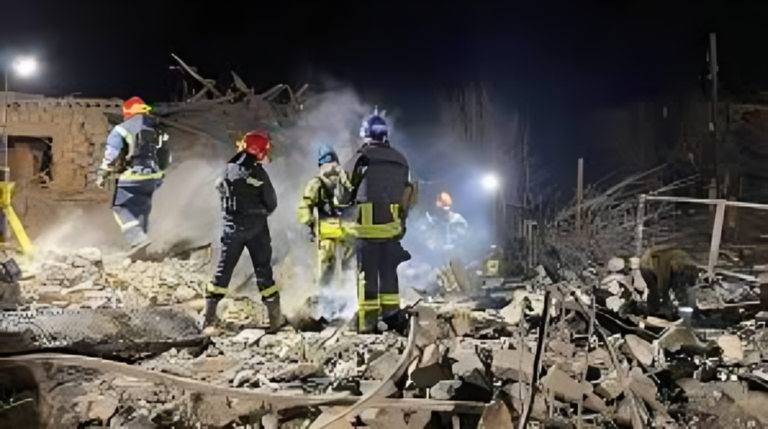A suicide bombing in the Afghan capital on Wednesday resulted in the death of Khalil Haqqani, the Taliban’s refugee minister, along with two other individuals, marking one of the most audacious attacks on the Taliban leadership since their return to power three years ago.
The explosion occurred within the ministry, tragically cutting short Haqqani’s life just hours after he was seen participating in a meeting chaired by Deputy Prime Minister Mullah Abdul Ghani Baradar.
Khalil Haqqani, an influential figure within the Taliban, is the uncle of Sirajuddin Haqqani, the acting interior minister who leads a prominent network within the organization. His death represents a significant loss for the Taliban, as he is the highest-profile casualty of a bombing since the group regained control of Afghanistan and the first Cabinet member to be killed since the takeover. No group has immediately claimed responsibility for the attack.
In a statement posted on X, the government’s chief spokesman, Zabihullah Mujahid, expressed profound sorrow over Haqqani’s death, describing him as a relentless holy warrior who dedicated his life to defending Islam. His killing is viewed as a substantial blow to the Taliban’s narrative of stability and security, particularly at a time when the group has emphasized its commitment to restoring peace after decades of conflict. Michael Kugelman, director of the Wilson Center’s South Asia Institute, noted that the loss of such a high-ranking leader within their own ministry undermines the Taliban’s core message of governance and control.
Pakistan’s Foreign Minister Ishaq Dar condemned the attack as a “terrorist act,” reiterating Pakistan’s stance against terrorism in all its forms. He indicated that the Pakistani government is in communication with Kabul to gather more information regarding the incident.
The bombing highlights the ongoing challenges the Taliban face in maintaining security across Afghanistan, particularly from the Daesh group’s affiliate, which has previously targeted the ruling faction. While suicide attacks had become increasingly rare since the Taliban seized power in August 2021, the recent violence contrasts sharply with the group’s claims of restoring order. Past attacks have primarily focused on minority Shiite Muslims, especially in the capital, raising concerns about the potential for escalating violence in the region.
This tragic event underscores the fragile nature of peace in Afghanistan and the ongoing threats to its leadership, as the Taliban grapple with internal and external pressures in their quest to stabilize the nation.











+ There are no comments
Add yours